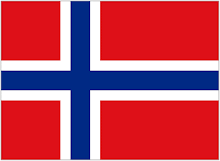"While dictators rage and statesmen talk, all Europe dances — to The Lambeth Walk."
Sunday, 26 April 2009
J. G. Ballard 1930 - 2009
The British fantasy writer James Graham Ballard died on 19th April at the age of 78.
His unique and often controversial work coined the term 'Ballardian', such was its impact and originality.
Among his most famous works is the novel 'Empire of the Sun', a fictional work which draws heavily on his own experiences as a civilian internee of the Japanese military during the Second World War.
Born in Shanghai's International Settlement, he was 13 when the Japanese invaded and his family were sent to Lunghua Civilian Assembly Centre.
Japanese war crimes and brutality during that period are fairly well-documented, particularly regarding Chinese civilians and Western POWs. However, it is not widely known in the West that over 200,000 Western civilians, mainly Dutch, British, American and Australian were captured and interned by the Japanese for the duration of the war.
Many suffered terrible abuses, and there were summary executions, widespread starvation and mistreatment and even cases of Dutch and Australian women forced into prostitution for Japanese soldiers.
In 2008 Ballard released his memoirs of this period, and they are well worth the read. The Mail published a serialisation on Saturday.
Ballard recounts how he knew something of the horrors which were happening around him, but being very imaginative and being a child gave him some much needed escape; he started ff in awe of the Japanese, particularly the pilots, but found a new fixation when American Mustang pilots would fly low over the camp on their way to bombing raids.
He managed to take mainly positive experiences from his ordeal, and treated the internment as a bit of an adventure. It must have had profound effects deep down, however, because much of his fiction was filled with themes such as the misery of modernity and the limits of the human mind.
Here is an extract:
Looking back, it puzzles me that my parents decided to stay in Shanghai when they must have known that war was imminent.
But the cotton works were my father's responsibility and duty then counted for something.
In March 1943, my parents, four-year- old sister and I were interned with other foreign civilians at Lunghua camp, a former teacher training college outside Shanghai, where we remained until the end of August 1945.
Our assembly point was the city's American Club. There we found a huge press of people, mostly British, sitting with their suitcases around the swimming pool, many of the women in their fur coats.
Some of the men carried nothing apart from the clothes they were wearing, confident that the war would be over within days. Others had strapped tennis rackets, cricket bats and fishing rods to their luggage. Together we waited at the tables where Americans had once sipped their bourbons.
Then we were taken to Lunghua, my last real childhood home, where I would spend the next two-and-a-half largely happy years.
Many found his work controversial; he is best known for 'Crash' a novel about the sexual fetishism derived by a couple from car crashes.
However, many of his lesser known works were truly great works of fiction, despite their often eerie detachment from all known reality.
Ballard was not only a great writer who will be sadly missed, but a member of the dwindling group of people who remember a Britain before what we have now, who knew there was worse than the 'evils' of Western civilisation - because they had the misfortune to experience it first hand.
Rest in peace.
His unique and often controversial work coined the term 'Ballardian', such was its impact and originality.
Among his most famous works is the novel 'Empire of the Sun', a fictional work which draws heavily on his own experiences as a civilian internee of the Japanese military during the Second World War.
Born in Shanghai's International Settlement, he was 13 when the Japanese invaded and his family were sent to Lunghua Civilian Assembly Centre.
Japanese war crimes and brutality during that period are fairly well-documented, particularly regarding Chinese civilians and Western POWs. However, it is not widely known in the West that over 200,000 Western civilians, mainly Dutch, British, American and Australian were captured and interned by the Japanese for the duration of the war.
Many suffered terrible abuses, and there were summary executions, widespread starvation and mistreatment and even cases of Dutch and Australian women forced into prostitution for Japanese soldiers.
In 2008 Ballard released his memoirs of this period, and they are well worth the read. The Mail published a serialisation on Saturday.
Ballard recounts how he knew something of the horrors which were happening around him, but being very imaginative and being a child gave him some much needed escape; he started ff in awe of the Japanese, particularly the pilots, but found a new fixation when American Mustang pilots would fly low over the camp on their way to bombing raids.
He managed to take mainly positive experiences from his ordeal, and treated the internment as a bit of an adventure. It must have had profound effects deep down, however, because much of his fiction was filled with themes such as the misery of modernity and the limits of the human mind.
Here is an extract:
Looking back, it puzzles me that my parents decided to stay in Shanghai when they must have known that war was imminent.
But the cotton works were my father's responsibility and duty then counted for something.
In March 1943, my parents, four-year- old sister and I were interned with other foreign civilians at Lunghua camp, a former teacher training college outside Shanghai, where we remained until the end of August 1945.
Our assembly point was the city's American Club. There we found a huge press of people, mostly British, sitting with their suitcases around the swimming pool, many of the women in their fur coats.
Some of the men carried nothing apart from the clothes they were wearing, confident that the war would be over within days. Others had strapped tennis rackets, cricket bats and fishing rods to their luggage. Together we waited at the tables where Americans had once sipped their bourbons.
Then we were taken to Lunghua, my last real childhood home, where I would spend the next two-and-a-half largely happy years.
Many found his work controversial; he is best known for 'Crash' a novel about the sexual fetishism derived by a couple from car crashes.
However, many of his lesser known works were truly great works of fiction, despite their often eerie detachment from all known reality.
Ballard was not only a great writer who will be sadly missed, but a member of the dwindling group of people who remember a Britain before what we have now, who knew there was worse than the 'evils' of Western civilisation - because they had the misfortune to experience it first hand.
Rest in peace.
Labels:
British History,
Second World War,
Western History
Subscribe to:
Post Comments (Atom)
.jpg)
















































































No comments:
Post a Comment